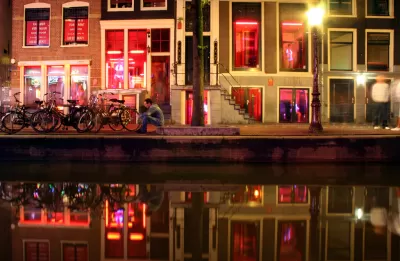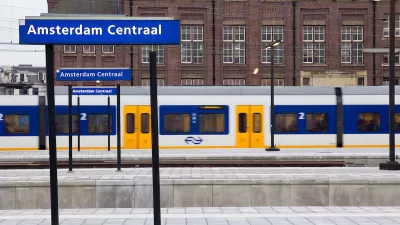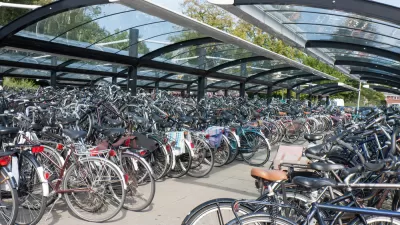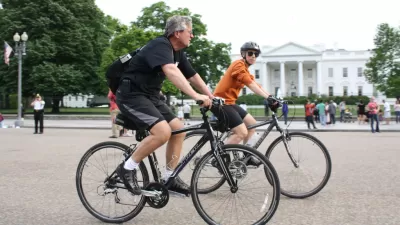In an attempt to force out organized crime and bring in a better class of tourist, the local government has forced the closure of brothels in the city's famed Red Light District.

Amsterdam's famed brothel lined streets in the city's Red Light District are under threat from an effort by the city to gentrify the area with upscale boutiques and restaurants. Beulah Maud Devaney writes in The Guardian, that the government’s efforts have so far been successful in shutting down 126 of the "windows" where tourists walking the streets could see prostitutes advertising their wares. However, the residents and sex workers of the district aren't happy with the changes imposed by the government.
Under the justification of tackling crime, the government forced brothel owners to sell their leases on this extremely valuable real estate. (All land in Amsterdam is owned by the government and leased to landlords.)…
In April 2015, more than 200 sex workers, led by PIC and PROUD, the Dutch sex workers union, marched through Amsterdam’s city centre to protest at the demonisation of their industry and the closure of the windows. The largest such protest in Dutch history drew public attention to the potential downside of gentrifying the red-light district.
Sex workers in the district believe that the government's effort to crack down on organized crime and human trafficking was just an excuse to force the closure of the brothels and open up valuable real estate. Now many are left without work and feeling the loss of their once vibrant community.
FULL STORY: Amsterdam's sex workers: the unlikely victims of gentrification

Alabama: Trump Terminates Settlements for Black Communities Harmed By Raw Sewage
Trump deemed the landmark civil rights agreement “illegal DEI and environmental justice policy.”

Planetizen Federal Action Tracker
A weekly monitor of how Trump’s orders and actions are impacting planners and planning in America.

The 120 Year Old Tiny Home Villages That Sheltered San Francisco’s Earthquake Refugees
More than a century ago, San Francisco mobilized to house thousands of residents displaced by the 1906 earthquake. Could their strategy offer a model for the present?

In Both Crashes and Crime, Public Transportation is Far Safer than Driving
Contrary to popular assumptions, public transportation has far lower crash and crime rates than automobile travel. For safer communities, improve and encourage transit travel.

Report: Zoning Reforms Should Complement Nashville’s Ambitious Transit Plan
Without reform, restrictive zoning codes will limit the impact of the city’s planned transit expansion and could exclude some of the residents who depend on transit the most.

Judge Orders Release of Frozen IRA, IIJA Funding
The decision is a victory for environmental groups who charged that freezing funds for critical infrastructure and disaster response programs caused “real and irreparable harm” to communities.
Urban Design for Planners 1: Software Tools
This six-course series explores essential urban design concepts using open source software and equips planners with the tools they need to participate fully in the urban design process.
Planning for Universal Design
Learn the tools for implementing Universal Design in planning regulations.
Clanton & Associates, Inc.
Jessamine County Fiscal Court
Institute for Housing and Urban Development Studies (IHS)
City of Grandview
Harvard GSD Executive Education
Toledo-Lucas County Plan Commissions
Salt Lake City
NYU Wagner Graduate School of Public Service





























